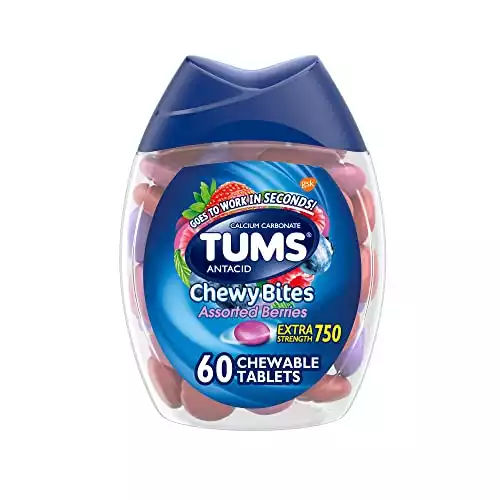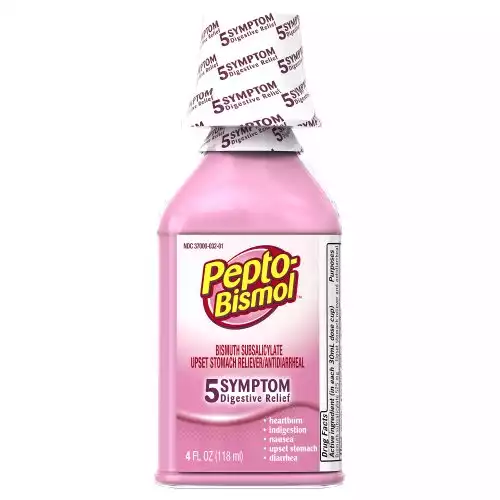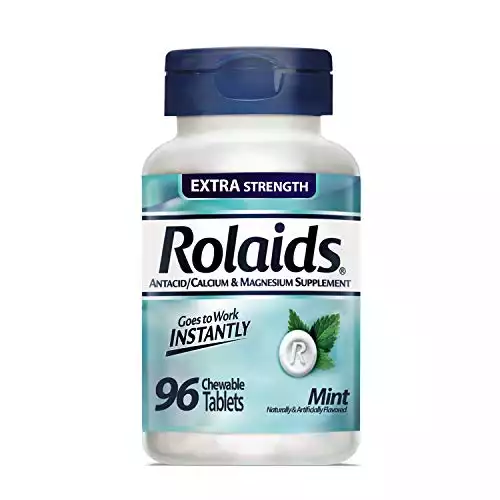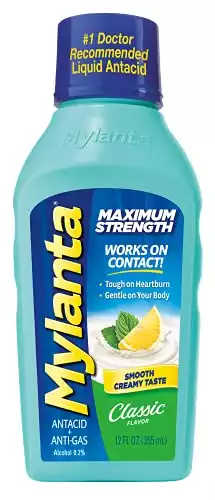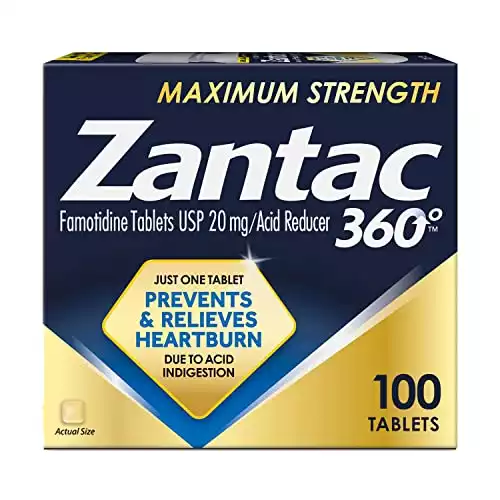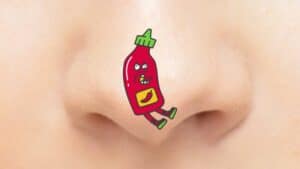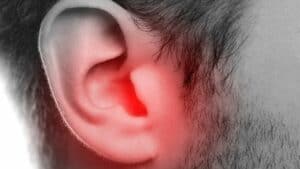Fiery hot cuisine may delight your tastebuds, but it can also set your stomach ablaze. Spicy favorites like hot wings, salsa, and curry often lead to painful heartburn. When chili peppers and spices heat up your insides, you need relief fast.
Luckily, over-the-counter antacids can quickly put out the fire. Antacids absolutely help relieve heartburn pain caused by spicy foods. With their acid neutralizing powers, antacids soothe irritation and quench the flames.
Keep fast-acting chewables or liquids like Tums, Rolaids, or Pepto handy after meals for immediate relief. A dose or two can calm the firestorm when your favorite dishes burn on the way down.
This guide will explore how antacids tackle
- Why spicy food triggers acid reflux
- How antacids neutralize stomach acid
- The most effective OTC products to keep on hand
- Lifestyle tweaks to prevent recurring heartburn
With the right info, you can feast on spicy cuisine and have relief ready when heartburn strikes. So read on to master the delicate dance of enjoying fiery fare without pain!
Why Spicy Food Causes Heartburn

Before learning how to treat heartburn from spicy food, it helps to understand what causes it in the first place.
There are a few reasons fiery foods can ignite heartburn:
- Capsaicin – This compound gives hot peppers their heat. It can relax the lower esophageal sphincter muscle, allowing stomach acid to rise up.
- Irritation – Spicy spices like chili powder can irritate the esophageal lining, making it more sensitive to acid.
- Slowed digestion – Heavily spiced dishes may delay stomach emptying, giving acid more time to cause problems.
- Fat content – Rich, fatty ingredients like cream and oil can also trigger acid reflux.
- Individual tolerance – Some people’s bodies handle
spice better than others.
Understanding your own tolerance levels is key to avoiding discomfort.
Identifying Your Spicy Food Triggers
While any spicy dish can cause heartburn, people often have specific triggers that are more likely to cause problems. Identifying your personal trigger foods is helpful for prevention.
Here are some tips on pinpointing problem
- Take note if certain spices like cayenne or chili powder tend to cause issues. Avoid dishes heavy in those.
- Pay attention to spicy sauces and condiments like hot sauce or salsa that consistently cause heartburn.
- Consider your tolerance levels at different times of day. You may digest
spice better at lunch than late dinners. - Watch portion sizes of spicy food. Large overloaded portions are more likely to cause discomfort.
- Note if ingredients accompanying
spice like onions, tomatoes or high-fat fare make heartburn worse.
Being aware of your own trigger foods allows you to make informed choices and prepare accordingly with antacids on hand. Analyze your diet and how you feel to determine your heartburn patterns.
How Antacids Relieve Heartburn
Antacids are medications designed to neutralize excess stomach acid and relieve heartburn. They work in two main ways:
- Neutralizing acid – Antacids contain alkaline compounds like calcium carbonate, magnesium, and sodium bicarbonate which neutralize acidic gastric juices in the stomach and esophagus.
- Coating the stomach – Some antacids form a barrier between the stomach lining and acidic contents to protect it from irritation.
This fast-acting acid relief provides quick heartburn relief on demand.
Antacids come in convenient chewable tablet, liquid and effervescent powder forms. Always follow dosage directions based on the product strength.
Best Antacids for Spicy Food Heartburn
If fiery food ignites heartburn every time, keep fast-acting antacids on hand to put out the fire. Here are 5 of the most effective options:
1. Tums
Tums contain calcium carbonate, an effective acid neutralizer. These chewable tablets provide rapid relief for mild heartburn.
Dosage: Adults should take 1-2 tablets as needed every 1-2 hours, up to 8 tablets daily.
2. Pepto-Bismol
The active ingredient, bismuth subsalicylate, coats the stomach lining to protect it from acid. The liquid form also relieves nausea and diarrhea.
Dosage: Adults should take 2 tablespoons every 30-60 minutes as needed, up to 8 times daily.
3. Rolaids
Rolaids soft chews combine calcium carbonate and magnesium hydroxide to neutralize acid. It relieves heartburn fast.
Dosage: Adults should chew 2-4 tablets as symptoms occur, up to 6 times daily.
4. Mylanta
This liquid antacid contains magnesium hydroxide and aluminum hydroxide for acid neutralization and stomach coating.
Dosage: Adults should take 2-4 teaspoons after meals and at bedtime, as needed.
5. Zantac
Zantac (ranitidine) reduces stomach acid production for up to 12 hours of heartburn relief. It comes in tablet form.
Dosage: Adults should take 1 tablet 30-60 minutes before eating spicy food.
Speak with your pharmacist about which over-the-counter antacid is best suited to your needs. Also note that antacids alone won’t heal serious gastrointestinal disorders. See your doctor if you experience frequent or severe heartburn.
Using Antacids Safely
While fast-acting antacids provide effective heartburn relief, take care to use them safely:
- Carefully follow dosage instructions on the label. Do not exceed recommended amounts.
- Do not take antacids longer than the advised treatment period, usually 1-2 weeks.
- Allow proper spacing between doses per the instructions. Do not stack too closely.
- Drink a full glass of water when taking antacids to prevent irritation.
- Be aware that overuse can cause side effects like constipation or diarrhea.
- Consult your doctor before using antacids if pregnant or have kidney disease.
- Watch for allergic reactions like rash, swelling or difficulty breathing.
- Keep all antacids out of reach of children.
Using over-the-counter antacids requires care and moderation. Follow guidelines and talk to your pharmacist or doctor with any concerns. With judicious use, antacids can safely ease spicy food heartburn.
Lifestyle Changes That Can Prevent Heartburn
While antacids provide on-the-spot relief, making certain lifestyle changes can help prevent heartburn in the first place:
- Limit spicy food intake – Avoid really fiery foods if they always cause problems. Moderate amounts may be tolerated better.
- Watch portion sizes – Don’t overstuff yourself with large, heavy meals that overload the stomach.
- Eat slower – Make sure to chew well and don’t rush through meals.
- Wait 3-4 hours before lying down – Give your body time to digest before reclining.
- Maintain a healthy weight – Extra abdominal fat can worsen reflux.
- Quit smoking – Smoking decreases lower esophageal sphincter pressure.
- Loosen tight clothing – Constrictive belts and slim-fit pants put pressure on the abdomen.
- Limit alcohol – Booze like wine can aggravate acid reflux.
With some adjustments, you may be able to keep enjoying moderately spicy dishes without the burning aftermath.
Considering Long-Term Acid Reflux Treatment
If you experience frequent or severe heartburn, solely relying on antacids may not be sufficient. It’s important to consult your doctor about long-term treatment options.
For recurring acid reflux, your doctor may recommend:
- Prescription-strength proton pump inhibitor (PPI) medication to reduce stomach acid production. These are more potent than over-the-counter options.
- Fundoplication surgery to tighten the lower esophageal sphincter and prevent acid backflow.
- Endoscopic procedures like Stretta or LINX that use devices to strengthen the esophageal valve.
- Diet and lifestyle changes to avoid reflux triggers – eating smaller meals, maintaining a healthy weight, quitting smoking, etc.
- Tracking symptoms to help identify causes and most effective treatments.
A gastroenterologist can best evaluate your situation and determine if more advanced acid reflux treatments may be appropriate in addition to using antacids for temporary flare-up relief. Don’t hesitate to seek advice for managing ongoing issues.
Can Milk Help Heartburn From Spicy Food?
What about drinking milk to ease
However, research hasn’t found consistent evidence that milk effectively relieves heartburn. The fat content may also stimulate more acid production.
Milk may temporarily alleviate the oral burning sensation from capsaicin. But antacids are still the go-to for relieving actual heartburn discomfort.
The Takeaway: Use Antacids Wisely to Enjoy Spicy Food
Spicy food and heartburn often go hand-in-hand, but that doesn’t mean you have to say goodbye to your beloved Buffalo wings or curry dishes. Keep fast-acting antacids like Tums, Rolaids, or Pepto-Bismol on hand after fiery meals. A dose or two can quickly douse the flames and let you enjoy
With smart use of antacids and a few preventive lifestyle changes, you can have the best of both worlds. Armed with this advice, you’ll be ready to feast on spicy fare without the burn!


